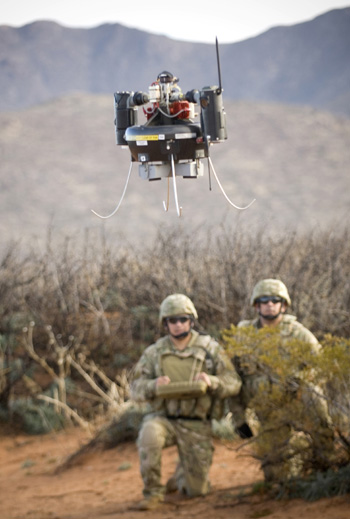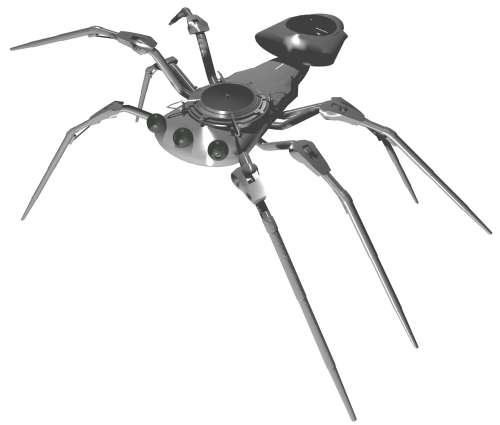US army in 2020
U.S. technologists have revealed that the country’s military has plans to have about 30 per cent of the Army comprised of robotic forces by approximately 2020.
Doug Few and Bill Smart of Washington University in St. Louis say that robots are increasingly taking over more soldier duties in Iraq and Afghanistan, and that the U.

S. Army wants to make further additions to its robotic fleet.
They, however, also point out that the machines still need the human touch.
“When the military says ‘robot’ they mean everything from self-driving trucks up to what you would conventionally think of as a robot. You would more accurately call them autonomous systems rather than robots,” says Smart, assistant professor of computer science and engineering.

All of the Army’s robots are teleoperated, meaning there is someone operating the robot from a remote location, perhaps often with a joystick and a computer screen.

While this may seem like a caveat in plans to add robots to the military, it is actually very important to keep humans involved in the robotic operations.

“It’s a chain of command thing. You don’t want to give autonomy to a weapons delivery system. You want to have a human hit the button. You don’t want the robot to make the wrong decision. You want to have a human to make all of the important decisions,” says Smart.

The technologist duo says that researchers are not necessarily looking for intelligent decision-making in their robots. Instead, they are working to develop an improved, “intelligent” functioning of the robot.

“It’s oftentimes like the difference between the adverb and noun. You can act intelligently or you can be intelligent. I’m much more interested in the adverb for my robots,” says Few, a Ph.D. student who is interested in the delicate relationship between robot and human.

He says that there are many issues that may require “a graceful intervention” by humans, and these need to be thought of from the ground up.

“When I envision the future of robots, I always think of the Jetsons. George Jetson never sat down at a computer to task Rosie to clean the house. Somehow, they had this local exchange of information. So what we’ve been working on is how we can use the local environment rather than a computer as a tasking medium to the robot,” he says.

Few has incorporated a toy into robotic programming, and with the aid of a Wii controller, he capitalizes on natural human movements to communicate with the robot.

According to the researchers, focussing on a joystick and screen rather than carting around a heavy laptop would help soldiers in battle to stay alert, and engage in their surroundings while performing operations with the robot.

“We forget that when we’re controlling robots in the lab it’s really pretty safe and no one’s trying to kill us. But if you are in a war zone and you’re hunched over a laptop, that’s not a good place to be. You want to be able to use your eyes in one place and use your hand to control the robot without tying up all of your attention,” says Smart.

Devices like unmanned aerial vehicles, ground robots for explosives detection, and Packbots have already been inducted in the military.

“When I stood there and looked at that Packbot, I realized that if that robot hadn’t been there, it would have been some kid,” says Few. (ANI)

Bagaimana dunia di masa yang akan datang ? terutama teknologi militer menggunakan robot.
“”"Yang penting itu robot jangan menjadi mesin pembunuh manusia, seperti yang terjadi di GAZA saat ini”"” v**me
SOURCE : http://duniaengineering.wordpress.com/2009/01/17/teknologi-robot-untuk-militer/
Tidak ada komentar:
Posting Komentar